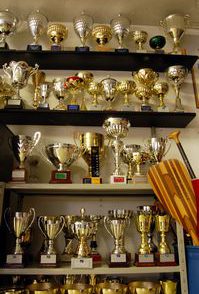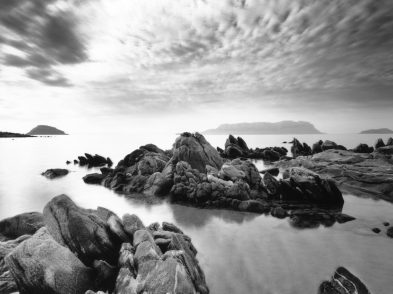He raced for three separate teams during his 15-year Formula One career. But in the end, German Michael Schumacher will be forever tied to the Ferrari Scuderia, and to Italy. Why? He won five of his seven World Championships with the Prancing Horse and dominated the world of Formula One in Ferrari’s iconic red and white car. Called the most successful driver of all time by Formula One, Schumacher holds 20 different world records, including the most Grand Prix victories, the fastest laps and the most races ever won in a single season. Despite his astounding talent, much criticism was levelled against the driver, particularly early on in his career. Origi-nally accused of being too stoic and reserved for Italian fans—Schumacher was thought ‘too German’ for their liking. While ‘Schumi’ made significant efforts to become more emotional in his bearing and language, the results he produced for the Ferrari team eventually won over this sports-savvy nation.
Schumacher recently announced his retirement after winning the 2006 Italian Grand Prix. The Scuderia, however, does not want to put Schumi out to pasture. CEO Jean Todt has said the retiring pilot may take on an advisory role regarding the choice of future driv-ers, and may be involved in the sporting and road car departments. Schumacher has not yet confirmed his willingness to carry out any function within the company. ‘I don’t want to define my role inside Ferrari yet,’ he said. ‘Ferrari has left me free to decide and has given me the time that I need to make up my mind.’
While Schumi considers his options, his faithful tifosi clearly want him to remember Italy with love. Last month in Monza at the Fer-rari World Finals, the fans turned out to give Schumi an emotional send-off, and to say thank you.
Schumacher joined Ferrari in 1996 as a seasoned driver, after having won back-to-back World Championships with Benetton. When he joined Ferrari, the Prancing Horse racing division was considered technologically and organizationally inferior to the front running teams, and had not won the driver’s championship since Jody Scheckter captured the title in 1979. In 2000, Schumacher started his run of five consecutive driver’s championships.
Despite such success, an aura of controversy often surrounded him. During the final seconds of the qualifying phase at the 2006 Monaco Grand Prix, for example, Schumacher stopped his car on the last corner, blocking other drivers from maximizing their lap times. Some drivers called him a cheat, while both Schumacher and Ferrari claimed ‘miscommunication.’ Controversy, however, rarely scares Italian fans, and Schumacher was never one to apologize. He has often said that he’s never had any intention of making friends on the track. ‘To be honest,’ Schumacher told the press earlier this year, ‘if other drivers criticize me then it means I’m doing things the right way.’
Replacing a legend is no small feat, but neither of the Ferrari drivers slated to drive in 2007, Kimi Raikkonen and Philippe Massa, seem daunted by the challenge. In fact, Massa recently made reference to an old Schumacher/Ferrari controversy: ‘I don’t think I’ll lift my foot off the throttle to let Kimi through.’ In 2002, at the Austrian Grand Prix, it was alleged that Ferrari ordered Schumacher team-mate and frontrunner Rubens Barrichello to let the German pull past him so that Schumi could secure a victory. By the same token, during an interview in Brazil, Raikkonen seemed concerned only with how fast the Ferrari cars will be in 2007. ‘It’s too early to make exact predictions,’ he said, ‘but after seeing the speed achieved by Ferrari here at Sao Paulo, I hope they’ll be able to maintain it when I get there.’
Despite Raikkonen and Massa’s confidence, Schumacher’s absence will undoubtedly leave a vacuum. And, while the future need not follow the past, it is important to note that, after Schumacher (and technical director Ross Brawn) left Benetton in 1996, they would go on to win only one more race before being bought by Renault in 2000. Therefore, another real concern for Ferrari fans is Brawn’s departure. Considered by many to have been Ferrari’s tactical mastermind, Brawn announced he was leaving Maranello to spend more time with his family, although he has not ruled out a return to Ferrari in 2007. Brawn will be replaced by Mario Almondo. In addi-tion, the Scuderia will also lose sports director and engine master Paolo Martinelli, who will move to the Fiat Group, and be replaced by Stefano Domenicali.
Italians like their sports heroes to have big personalities, and they demand winners. At the end of the day, after all the internal cor-porate reshuffling, drivers Raikkonen and Massa will either get the glory or take the blame; and they must be able to deal with either eventuality. Michael Schumacher was not flamboyant, but what you saw on the paddock was what you got—a determined, hard-nosed, no-holds-barred, once-in-a-lifetime competitor—who brought respect back to Ferrari and to Italy.






